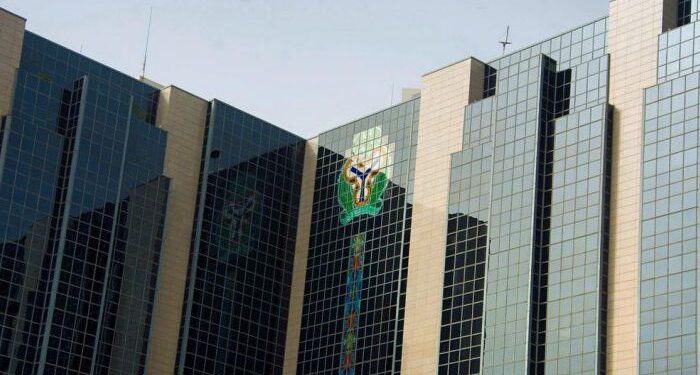The Central Bank of Nigeria (CBN) has disclosed that a staggering ₦923.16 billion in cash was withdrawn from the banking system between May 2024 and May 2025, reflecting a sharp increase in physical currency held outside of financial institutions. The data, published in the CBN’s latest Money and Credit Statistics report, paints a concerning picture for financial regulators as the country’s push toward a cashless economy appears to be slowing.
According to the CBN, the amount of money outside the formal banking sector rose from ₦3.71 trillion in May 2024 to ₦4.63 trillion in May 2025, representing a year-on-year increase of over 25 percent. In comparison to April 2025 alone, the currency outside banks stood at ₦4.57 trillion, indicating a month-on-month rise of 1.42 percent. Meanwhile, the total currency in circulation rose to ₦5.01 trillion in May 2025, up from ₦3.97 trillion the previous year. This signals a 26.45 percent increase in just twelve months, further underscoring Nigerians’ preference for holding cash.

Analysts believe the steep increase in cash withdrawals is indicative of public unease with the formal banking system, as well as structural issues such as limited access to financial services, especially in rural areas. The increase also comes despite efforts by the Central Bank to deepen financial inclusion and promote electronic payment systems. Initiatives such as the introduction of the eNaira, agent banking, and mobile wallet solutions were expected to reduce the reliance on physical cash, but these gains now appear threatened.
Some economic observers have linked the trend to reduced confidence in the banking sector, heightened by recent economic instability, rising inflation, and the depreciation of the naira. With inflation eroding the value of savings and concerns over transaction charges, system failures, and policy reversals, many Nigerians are opting to keep their money in cash for quicker access and perceived security.
This reversal comes just over a year after the controversial naira redesign policy implemented in late 2022 and early 2023. At the time, the Central Bank attempted to mop up excess cash from circulation by limiting withdrawals and changing the design of high-denomination notes. Though it initially led to severe cash shortages and disruptions in daily life, the policy temporarily succeeded in pushing many Nigerians toward digital transactions.
However, following the Supreme Court ruling that extended the validity of old naira notes and a relaxation of the CBN’s strict cash withdrawal limits, cash gradually returned to dominance. The recent data suggests that Nigerians have continued to revert to pre-cashless behaviors, keeping large volumes of money outside the formal financial system.
Experts warn that this trend could have multiple negative implications for the Nigerian economy. First, it undermines the efficiency and security of the banking system, as large-scale cash transactions are harder to trace, regulate, and tax. Second, it poses a threat to the stability of monetary policy, as a growing portion of the money supply operates outside the purview of the banking sector. Finally, it may fuel illicit financial activity and money laundering, as cash-based economies are notoriously difficult to monitor.
Financial experts have also expressed concerns about the implications for national development. With fewer funds available in the banking sector, credit creation is constrained, limiting the capacity of banks to lend to businesses and households. This can stifle economic growth and make it harder for small and medium-sized enterprises to access much-needed financing.
In response, the Central Bank is reportedly considering new strategies to reinvigorate public confidence in formal banking. There is a renewed focus on enhancing digital infrastructure, strengthening cyber security, and ensuring reliability in online banking services. Efforts are also underway to simplify digital onboarding processes for the unbanked and to educate citizens on the benefits of maintaining bank accounts and using electronic payment platforms.
Meanwhile, the CBN continues to encourage the use of the eNaira, Nigeria’s digital currency launched in 2021, which has seen slow adoption despite being the first of its kind in Africa. Authorities believe the eNaira could help reduce cash dependency if it gains public trust and is widely accepted by merchants, institutions, and individuals.
While cash remains king in many parts of Nigeria, particularly in informal sectors and rural communities, the Central Bank insists that transitioning to a more cashless economy is vital for national development. The recent data, however, reveals that the road ahead remains challenging.
With ₦923 billion withdrawn from banks in just one year, the message is clear: restoring confidence in the banking system and promoting financial inclusion must be prioritized. Without swift and strategic interventions, Nigeria risks falling further behind in the global shift toward modern, traceable, and efficient financial systems.
Support InfoStride News' Credible Journalism: Only credible journalism can guarantee a fair, accountable and transparent society, including democracy and government. It involves a lot of efforts and money. We need your support. Click here to Donate
